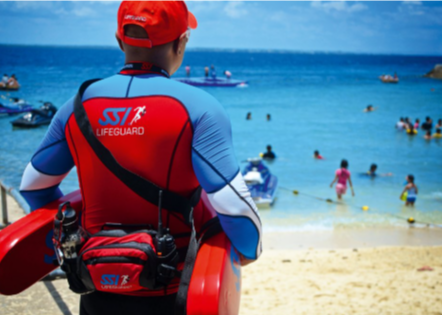Refreshing Your Skills: The Importance of Lifeguard Recertification
Lifeguarding is a fast-paced and rigorous profession that calls for constant attention, immediate judgment skills, and expert skills. With or without lots of experience, obtaining lifeguard recertification at regular intervals is essential for a lifeguard to be prepared to save lives.
Recertification courses help refresh your age-old knowledge and keep you updated on modern safety protocols, rescue techniques, and advanced first-aid treatments. As said by the American Lifeguard Association (ALA), one of the most prominent organizations involved in the training of lifeguards, regaining your recertification status is paramount for the highest standards of water safety.
In this article, we will look into the importance of lifeguard recertification, and courses, and how being up to date can make all the difference in emergencies.
Why Lifeguard Recertification Is Important
1. Keep Those Skills Sharp
If lifeguarding skills are not practised for quite some time, they can fade away. CPR techniques, rescue, and first-aid procedures all change, and a lifeguard recertification course ensures that everything is up to date. The recertification programs of the American Lifeguard Association focus on solidifying muscle memory and improving the response time of lifeguards in emergencies.
2. Change in Safety Requirements
As new studies provide evidence, water safety standards change. A recertification course will cover what’s new in the field, including:
New protocols for CPR and AED
Drowning recognition
Spinal injury management
Being recertified enables you to comply with the new standards set by the industry, thus making you more efficient as a lifeguard.
3. Legal and Employment Requirements
Most employers and state laws require present-day certifications. If you let your certification lapse, it could cost you your job or make you ineligible for rehire. Regular lifeguard recertification guarantees that you stay compliant with workplace standards and legalities.
4. Giving The Lifeguard Confidence When an Emergency Comes
There’s no time for hesitation in any rescue scenario. With recertification, lifeguards simulate real emergencies, allowing practice under pressure, therefore building confidence in their skills.
Expectations from a Lifeguard Recertification Course
A lifeguard recertification course usually condenses the key points of training into a shorter version while addressing all the major skills. Expectations include:
1. CPR, First Aid, and AED Refresher:
Adult, child, and infant CPR.
Rescue breathing techniques.
Automated External Defibrillator (AED) use.
How to respond to obstructed airways.
2. Water Rescue Skills Review
- Rescue of passive and active victims.
- Spinal injury management in water.
- Use of rescue tubes and backboards.
3. Observation and Prevention Methods
- Zone coverage.
- Identification of distressed vs. drowning swimmers.
- Preventing aquatic injuries before they occur.
4. Scenario-Based Training
Mock emergencies help a lifeguard exercise teamwork, communication, and rapid assessment of choices. Lifeguard coursesprovided by the American Lifeguard Association are tailored to be exciting, practice-oriented, and in accordance with best practices currently accepted.
How Often Should You Recertify?
Most states grant lifeguard certifications for two years before issuing a new one. Other facilities may have particular rules where they require annual refreshers, particularly CPR and first aid.
Signs It’s Time for Recertification:
- The certification is near its expiry date.
- You have not worked on any rescue skills for months.
- New safety protocols have been introduced.
- Your employer requires it.
Do not wait until the last minute; get your recertification for lifeguards scheduled ahead of time.
See Also: How Technology Is Redefining the Customer Experience
Selecting the Appropriate Recertification Program
All lifeguard recertification options are not the same. When considering a recertification course review the following:
- Any accrediting body, the American Lifeguard Association or others
- Includes practical applications, not just theory.
- Is up-to-date with the latest safety materials.
- Is flexible to your schedule (of course many combined online/in-person at this time).
Last Thoughts: Be Prepared, Be Certified
Lifeguarding is more than a job it is your obligation to safety. Lifeguard recertification is just that: confirming your readiness to act when the seconds count. Lifeguard recertification keeps your skills fresh and offers new techniques, new experiences, and confirmation of compliance with standards in aquatic safety.
The American Lifeguard Association, along with the other leading organizations offers recertification programs that prepare lifeguards for high performance. Don’t let your certification expire. Stay on your toes, be confident and do your best to positively impact your community.
Want to Recertify?
If your certification has or is approaching a point where it will need to be renewed, go find and enrol in a lifeguard recertification course near you. Your skills save lives; keep them fresh!






